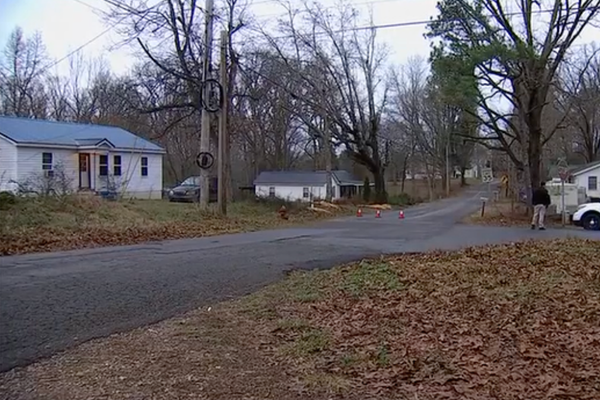
Thousands of council housing tenants in England have waited more than a year for repair work on their homes to be completed, according to data compiled by the Observer.
Concern at the dilapidated state of social housing has risen in recent years amid a series of reports and scandals. Freedom of information (FoI) requests to councils in England found that many local authorities have extensive backlogs of repairs.
Housing solicitor Giles Peaker said he came across councils not carrying out repairs “all the time”.
“We’ll routinely see ones where repairs have been outstanding for over a year, two years … up to six years on occasion,” he told the Observer.
“There are people in wet, leaking properties, unable to use bedrooms, living rooms, bathrooms. We’ve had falling ceilings due to sustained leaks, people in mould-infested properties, and people who dare not open their windows because they think they’ll fall out.
“Or they can’t open their windows because they’re jammed or the frames are rotting. It depends on the issue, but it can be incredibly severe – deeply horrible to live with.”
Dudley council said that 2,065 council homes had repair and maintenance work waiting more than a year – nearly 10% of all council homes in the area. A further 2,277 council homes had been waiting between six months and a year.
Kathryn Jones, director for housing at Dudley council, said: “We acknowledge, as the figures show, that there are occasions when the authority either cannot or does not meet timescales for repairs, and we do apologise for that.
“There are a number of factors that contribute to this, such as the availability of labour and materials. Like everyone else, we are battling rising costs while trying to balance the books.” She said the council would overhaul its asset and maintenance services in order to speed up repairs.
Haringey council, which was recently criticised by the social housing regulator for having thousands of substandard council homes, said 3,064 properties had been waiting for repair work for over a year, out of its 14,580 total council housing stock.
Last year, Haringey reversed the outsourcing of its council housing management. “We are very sorry that our residents have not been receiving the quality of service that they should have done,” said Dana Carlin, Haringey’s cabinet member for housing services. We are committed to improving our services so that repairs are resolved quickly and effectively for our residents, including bringing in additional resources to reduce the backlog.”

Swindon council, which did not respond to a request for comment, provided data showing 1,015 homes waiting at least a year for repairs, and a further 1,902 waiting between six months and a year.
In total, 26 councils provided data showing at least 100 council homes waiting a year for repair work, excluding empty properties. By contrast, 24 councils reported no repair work waiting more than six months.
Much of the long-delayed work unearthed by the Observer concerns roofing and guttering, and repairs that councils have started but not finished. Among the 456 individual repair jobs in Leicester waiting more than a year are 120 guttering repairs, 164 roof repairs and 14 repairs to windows. None are listed as emergencies.
Chris Burgin, Leicester city council’s director of housing, said: “Due to a lack of craft workers – a national issue that also affects the number of contractors available to us – we have had to prioritise urgent repairs, such as total loss of heating or electrical power and serious leaks, and 97% of these jobs have been carried out within our 24-hour target time.
“We are working hard to catch up with non-urgent repairs and to achieve the targets that are important to us and our tenants.”
“There are all kinds of reasons why things don’t get done,” said Peaker, “ranging from pure administrative inefficiency by the councils – complaints don’t get properly recorded or they get recorded but not acted upon – to somebody attending without notice, not getting in, and it’ll just be cancelled.”
He said contractors sometimes put cards through doors saying that they attended but the tenant was out, even when the tenant was in: “It’s late on in the day or whatever. That’s not uncommon.”
Polly Neate, chief executive of Shelter, said: “No one’s home should put their health or safety at risk. Tenants pay rent for their home to be in a fit state to live in. But some social landlords have been able to drag their heels on repairs and ignore tenants because there hasn’t been the means to hold them to account – that will change when the social housing regulation bill becomes law.
“Under the social housing regulation bill, if landlords manage homes with serious hazards, like damp and mould, and do nothing about it, they should face tough enforcement action. The legislation will also require landlords to carry out essential repairs within certain timeframes, something we hope will help to prevent future tragedies like the death of toddler Awaab Ishak.”







